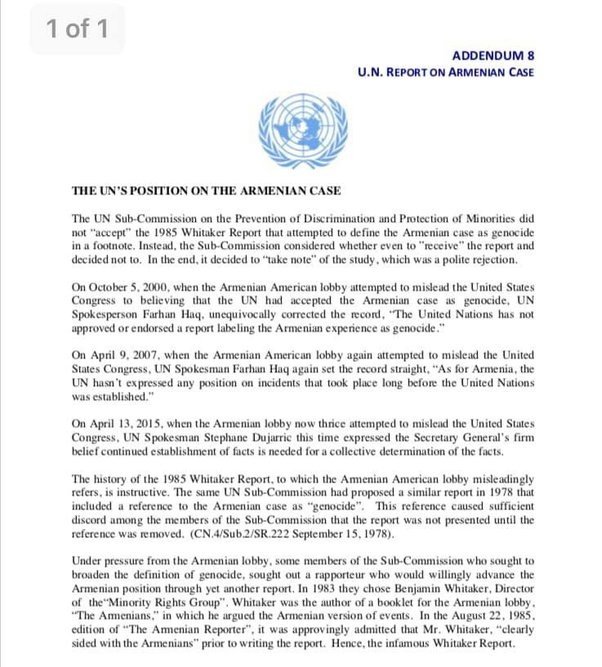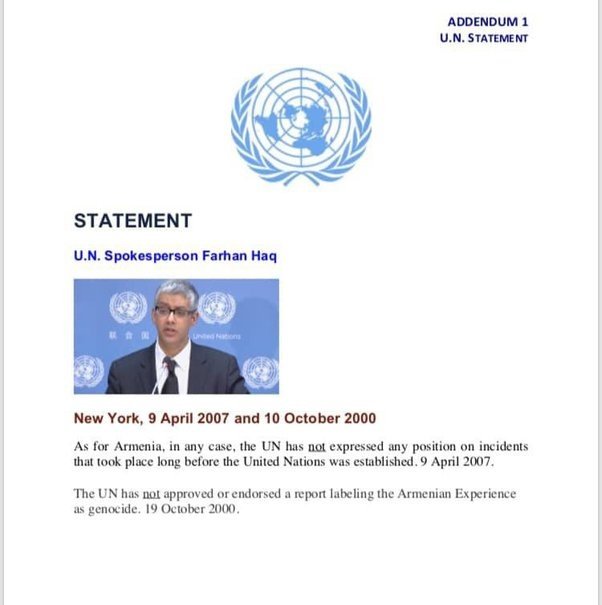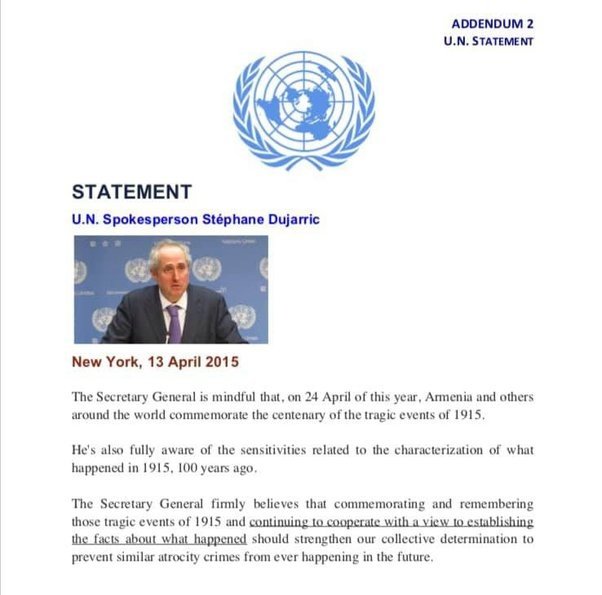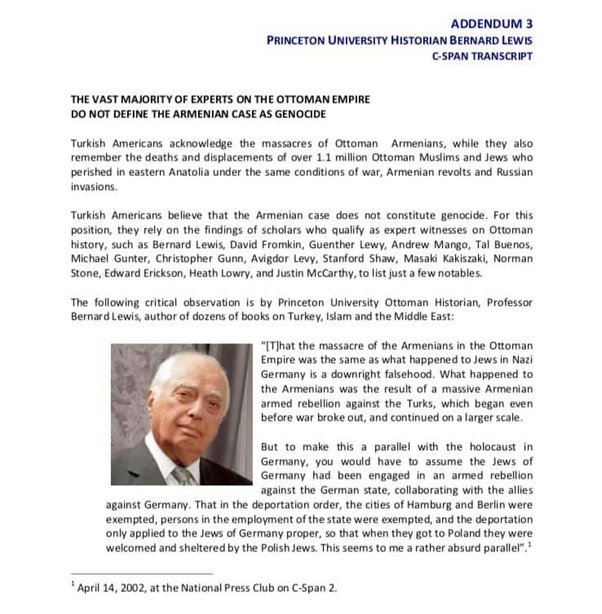The Whitaker Report is not specifically related to the Armenian Genocide.
The Whitaker Report is commonly associated with a different issue. It is often referred to as the “Whitaker Report on Genocide,” and it was prepared by Benjamin Whitaker, a British lawyer, for the United Nations in 1985. The report focused on the topic of genocide and the legal and practical measures that should be taken to prevent and punish it. It played a significant role in shaping the legal and political discourse surrounding genocide prevention and the eventual establishment of the International Criminal Court (ICC).
The UN Sub commission did not accept the report, but decided to “receive” it.

Since 1985, the UN Spokesperson has three times declared that the UN does not accept the Armenian case as genocide.
Of the seven independent organizations who provided their expert opinions, three were later to be found to be fronts for Armenian groups that support the Dashnaks.
The Special Rapporteur (Whitaker) who snuck in the footnote later admitted that he had been retained by the Armenian lobby, but that he did not receive any money for his report. However, he later did work for the Armenian lobby for money.

Whitaker report stated in paragraph 24 that:
The Nazi aberration has unfortunately not been the only case of genocide in the twentieth century. Among other examples which can be cited as qualifying are the German massacre of Hereros in 1904, the Ottoman massacre of Armenians in 1915–1916, the Ukrainian pogrom of Jews in 1919, the Tutsi massacre of Hutu in Burundi in 1965 and 1972, the Paraguayan massacre of Ache Indians prior to 1974, the Khmer Rouge massacre in Kampuchea between 1975 and 1978, and the contemporary [1985] Iranian killings of Baha’is.
— Whitaker Report, (paragraph 24)

